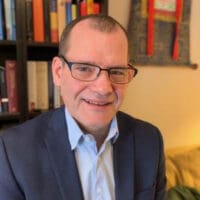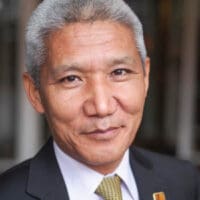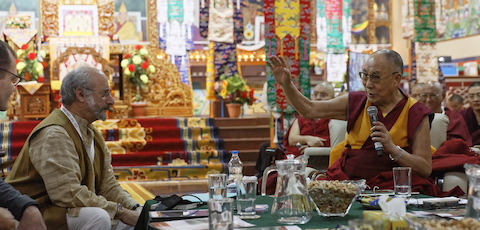Mind and Life XXX: Session Five
Filmed during Mind & Life Institute’s “Mind & Life XXX: Perception, Concepts, and Self” on December 16, 2015.
The Self: What Isn’t It?
SPEAKER: Jay Garfield
In this presentation, Garfield describes the range of positions in Western and in Buddhist philosophy regarding the self and the person, what motivates each, and what problems each view confronts. We then look briefly at the substantialist views of self against which most Buddhist and contemporary Western views are developed. We distinguish questions about synchronic and diachronic unity and identity, and distinguish between a conventional person and an intrinsically real self. We consider reductionist, supervenience, bundle and sequential models of selfhood before turning to narrative and socially constructive models of the self and no-self in both traditions. We conclude with some observations about the ethical implications of self-grasping and of selflessness.
The Self in a Buddhist Perspective
SPEAKER: Professor Geshe Yeshe Thabkhe
In order to understand Buddhist accounts of the person, one must first identify the object of negation-the thing whose existence is to be refuted. That is the atman, or the unchanging, partless core self that is distinct from mind and body, and is what is reborn. At the time of the Buddha, the orthodox position in India was that every person has such an atman. The Buddhist doctrine of no self-anātman-rejects that view. The Buddha argued that nothing is permanent or has an essence, and that persons, like everything else, are impermanent, constantly changing, partite, and exist only in dependence on causes and conditions, their parts and on mental imputation. This rejects the orthodox self, but does not reject the conventional, ordinary empirical existence of persons as dependently originated phenomena. Different Buddhist tenet systems have different ways of identifying the person. The Vaibhasika assert that the mind and body are the self. The Yogācāra assert instead that the person is the fundamental mind. Mādhyamikas argue that everything is impermanent, dependent, ultimately empty of true existence and only conventionally real. Prasangika Mādhyamikas say that while the body and mind are not the self, they are the basis for the designation, “self.” The conventional self on this view is imputed on this basis. The self on this view is an impermanent phenomenon but is neither material form nor consciousness.
MODERATOR: John Dunne
INTERPRETER: Thupten Jinpa
PANELISTS:
His Holiness the 14th Dalai Lama
Lera Boroditsky
Richard J. Davidson
Roshi Joan Halifax
Wendy Hasenkamp
Bryce Johnson
Catharine Kerr
Tenzin Lhadron
Geshe Lhakdor
Thabkhe Lodroe
Geshe Dadul Namgyal
Werner Nater
Geshe Lobsang Tenzin Negi
Vasudevi Reddy
Matthieu Ricard
Yangsi Rinpoche
Pawan Sinha
Khenpo Sonam Tsewang
David Vago
Christy Wilson-Mendenhall
Carol Worthman
Participants

John Dunne, PhD
University of Wisconsin-Madison

Thupten Jinpa, PhD
Board Chair, Mind & Life Institute



